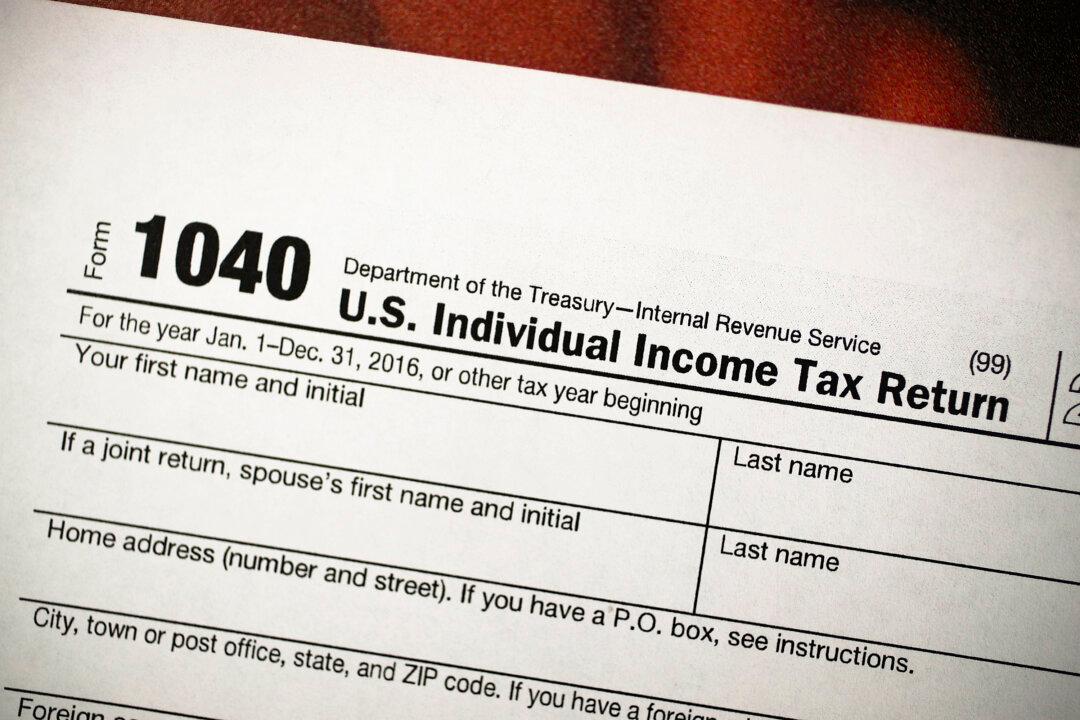Meanwhile, a poll suggests that the number of people paying more to the IRS could be on the rise.
The IRS data showed that 66.8 million taxpayers received an IRS payment through April 5, 2024, as compared to 69.1 million who got refunds by the same time last year. This means that 2.3 million fewer Americans got a boost to their bank accounts this season.
However, the amount issued per refund increased this year. The average refund for this filing season totaled $3,011, while 2023’s average amount was $2,878.
So far, the IRS has delivered more than $200 billion in refunds through early April, and 101 million people have filed returns this tax season.
The IRS has not issued a statement as to why fewer Americans have been receiving refunds over the past several years. The Epoch Times contacted the agency for comment on April 16.
A poll from CivicScience found more Americans saying during this filing season that they unexpectedly owed money to the IRS or owed more than they thought compared with last year.
About six in 10 U.S. taxpayers surveyed said they received a heftier tax bill from the agency this year. Households earning more than $100,000 were more likely to say they unexpectedly owed money.
A former IRS official, Bob Kerr, told Politico in an article published on April 16, that the smaller number of refunds might create difficulties for the agency.
“We want to make sure that people are, in fact, filing,” he said. “And there are a whole bunch of people who do it because it pays to do it.”
‘A Lot More Tax Debtors’
Jim Buttonow, an accountant in North Carolina, speculated that the higher number of people paying the IRS “stresses the system” because the IRS “has got a lot more tax debtors” now.Despite the lower number of refunds, top Treasury and IRS officials touted the agency’s efforts in recent months.
“This filing season, the IRS has built off past successes and reached new milestones,” Treasury Secretary Janet Yellen said during an April 12 call with reporters. “It’s showing that when it has the resources it needs, it will provide taxpayers the service they deserve.”
This past week, IRS Commissioner Daniel Werfel said, “It’s clear that we’re seeing historic improvements in taxpayer service levels, and the agency is rebounding from some very tough and lean years during the past decade.”
The IRS also said that call wait times have been reduced to three minutes this tax season, compared with an average of 28 minutes in 2022.
That has saved taxpayers 1.4 million hours of hold time and the agency has answered 3 million more calls compared with the same time frame. Also, the updated “Where’s My Refund” tool giving more specific information about taxpayers’ refunds in plain language was rolled out to 31 million views online.
The IRS has said that taxpayers still have until May 17 to file tax returns for 2020, saying that about 940,000 Americans have unclaimed refunds for that tax year. Taxpayers typically have three years to file and claim tax refunds or the money becomes the property of the U.S. Treasury.
“We want taxpayers to claim these refunds, but time is running out for people who may have overlooked or forgotten about these refunds,” the IRS commissioner said in a recent news release.
“There’s a May 17 deadline to file these returns so taxpayers should start soon to make sure they don’t miss out.”
Tax season officially started on Jan. 29, and ended on Monday, April 15. Millions of people are expected to have filed for an extension, pushing back the deadline to file their returns until mid-October.







